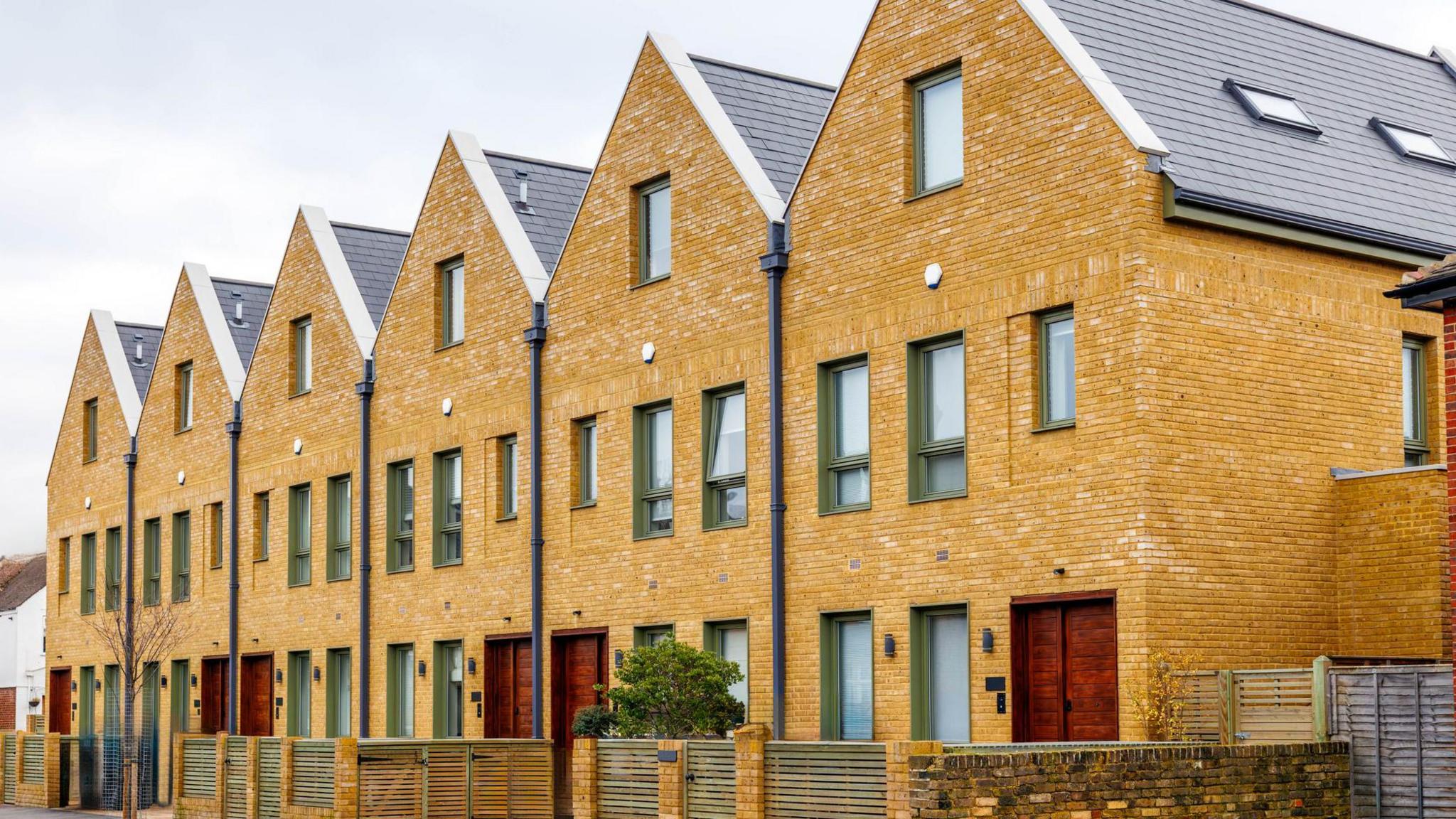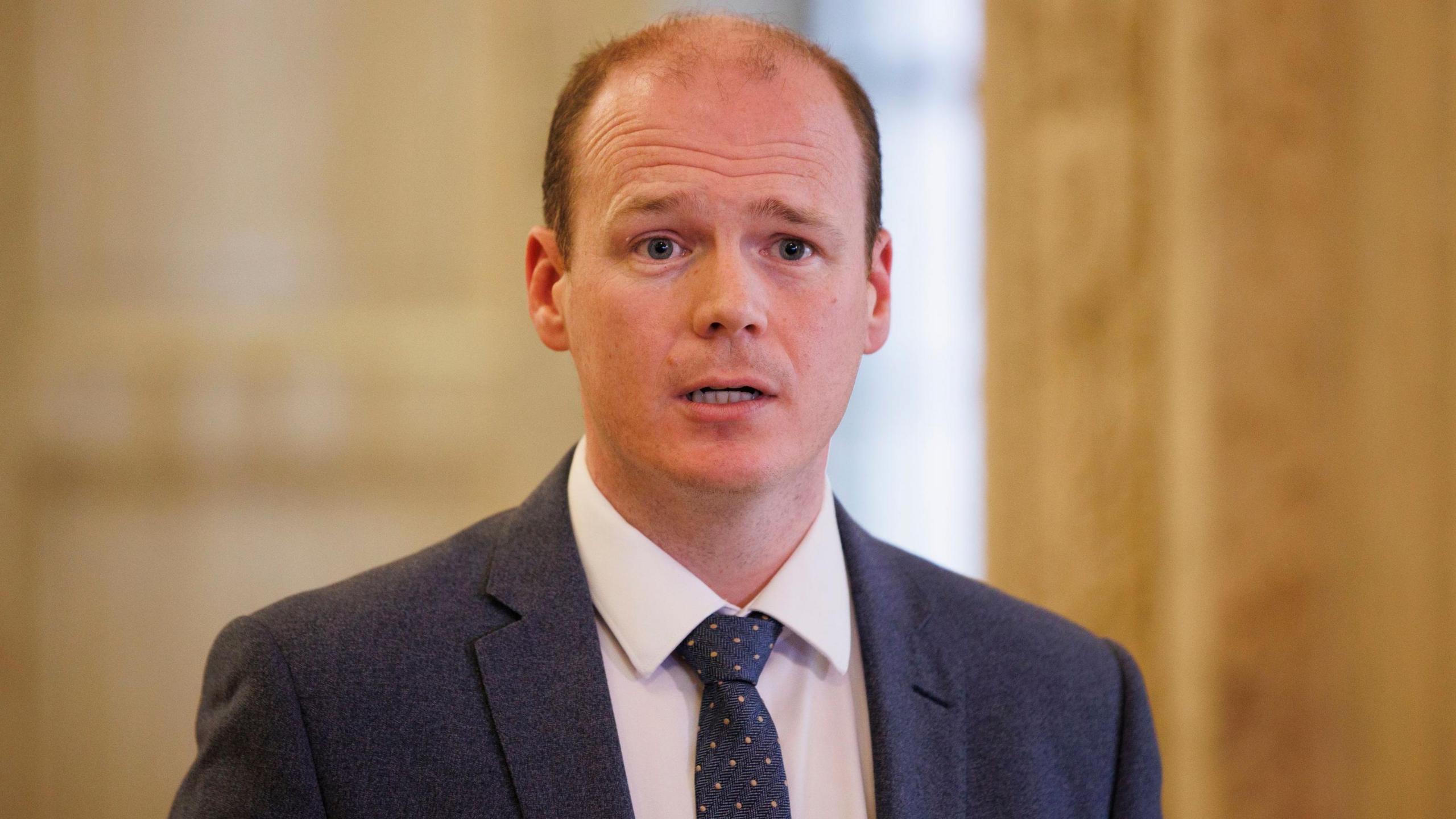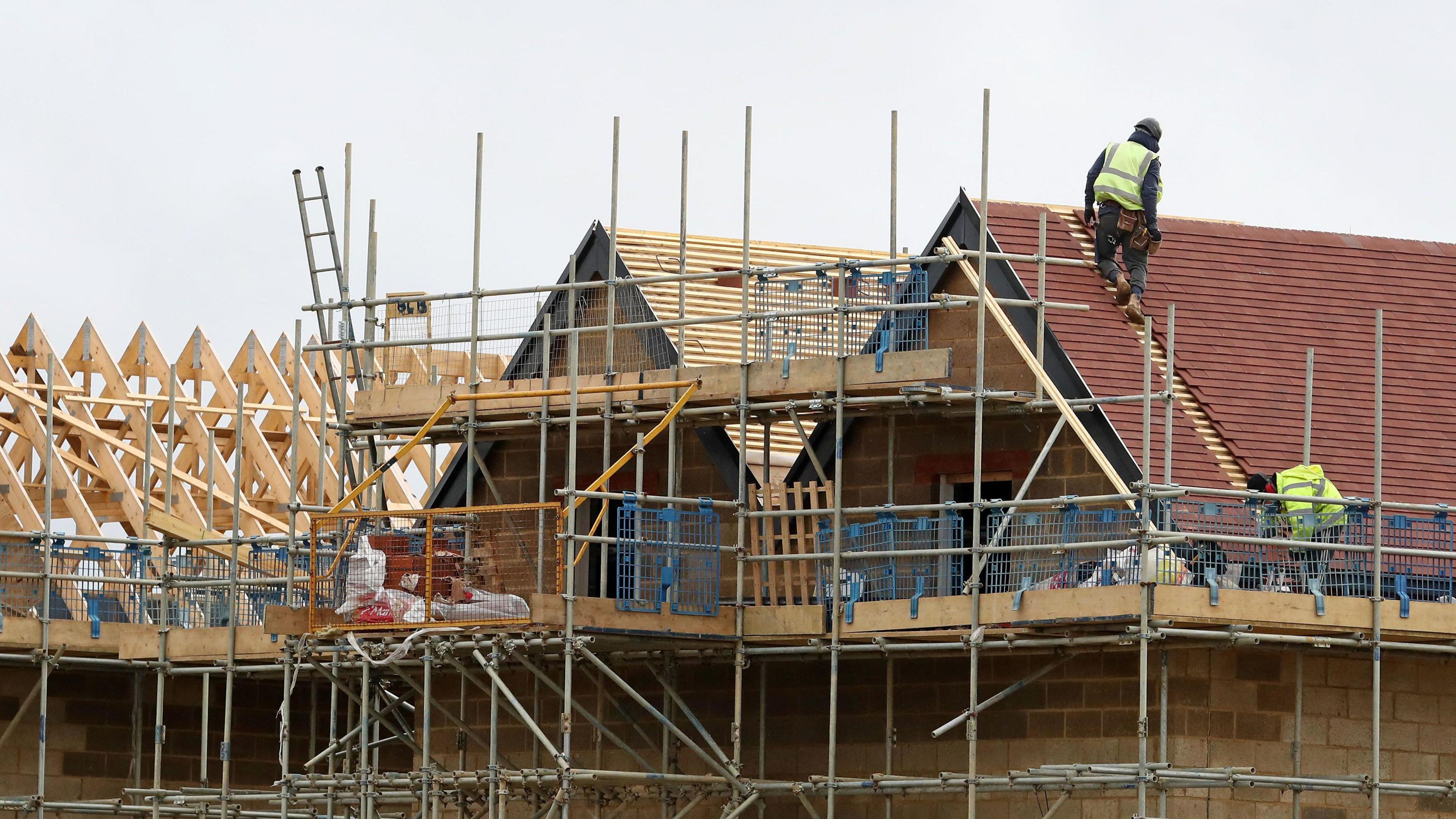New social housing funding cuts will cause delays, association says

Stormont has not met its targets on social housing
- Published
Funding for housing associations to build new social housing is to be cut, Communities Minister Gordon Lyons has announced.
This shift will mean higher construction costs for developers, with some social housing projects likely to be abandoned or delayed according to the Northern Ireland Federation for Housing Associations.
The communities minister claims "the changes will achieve better value and more social homes for those who need them".
But local developer Agnes Crawford has told BBC News NI the change will pose a "significant threat" to her planned social housing development in north Belfast.
With almost 50,000 people on a waiting list for social housing, there is broad political agreement that more homes need to be built.
On Monday, Lyons announced that less public money will be made available to the companies who build those homes.
Social housing is typically funded by a combination of grants from public money and loans from private finance. Grants are offered on better terms than commercial loans, reducing costs for housing associations.

The communities minister argues that the changes will achieve better value
Ms Crawford, the chief executive of Grove Community Housing, told BBC News NI that despite positive engagement with the minister on this topic, the changes mean her housing development will now be delayed as they reassess the viability of the scheme.
"We were hoping to get out to tender this week to try and get spades in the ground before the end of March, so now with the announcement of the reduction in funding this means we'll have to pause and recalculate the figures," she said.
"It's challenging news. It makes the ability to get there all that more difficult. It means we're heavily leaning on private finance and there's a cost to that."

Agnes Crawford has warned that there will be increased costs as developers look to privately finance projects
Monday's announcement will see the grant provided to housing associations to finance the building of a new social home fall on average from 54% of the total cost, to 46% from 1 December.
In some areas already struggling with housing shortages, including parts of Belfast, the grant will now make up just 42% of the cost.
Seamus Leheny, chief executive of the Northern Ireland Federation of Housing Associations, has warned that this funding change puts some housing schemes in jeopardy.
"It's concerning, certainly for places like Belfast, Lisburn, Castlereagh where the rates have gone down to 42% I think there's a serious need for housing associations to do the sums on that, because there could be a lot of schemes in these areas that would be at risk of not proceeding."
Mr Leheny added that even where schemes are able to proceed, the increased building cost will likely be passed on to tenants in the form of higher rents.

Seamus Leheny has warned that increased building costs will likely be passed on to tenants in the form of higher rents
The communities minister said that the "challenging financial context" required innovative thinking and that the changes "will achieve better value and more social homes for those who need them".
He also pointed to the possibility of building on government land to reduce social housing costs, and another means of accessing finance as possible routes to increased house building, in spite of the funding cut.
Mark H Durkan, the opposition's communities spokesperson said the announcement would see fewer homes being built and a deterioration of existing social homes.
"It's hard to see how cutting their funding will achieve anything other than fewer homes being built," he said.
"This cut will also impact the ability of Housing Associations to maintain existing properties and could lead to a situation where homes become inhabitable due to a lack of investment.
"This is the last thing we want to see with our social housing stock under such pressure."
Borrowing
The announcement comes following Lyons's appearance at a Northern Ireland Assembly scrutiny committee in which he said he had hit "a brick wall" in his discussions with the Treasury aimed at securing borrowing powers for the Housing Executive.
A UK government spokesperson said the latest spending review saw the executive provided with a record settlement of about £19.3bn per year.
As part of the review, the Treasury committed to begin immediate negotiations on a full fiscal framework for Northern Ireland, including consideration of the Housing Executive's borrowing.
Lyons said he felt discussions with the Treasury were "going round in circles" and that it was one of his "biggest frustrations so far in my time in office".
Related topics
- Published26 October

- Published18 August

